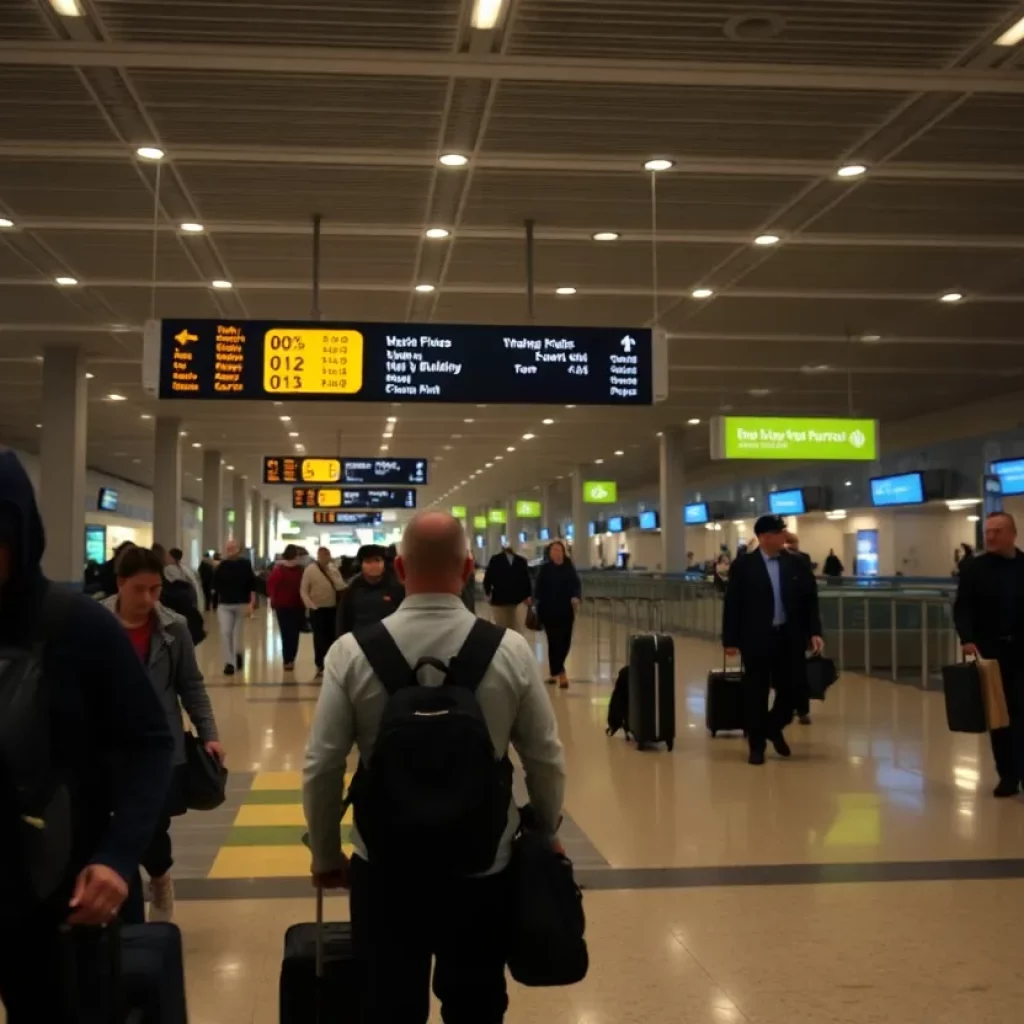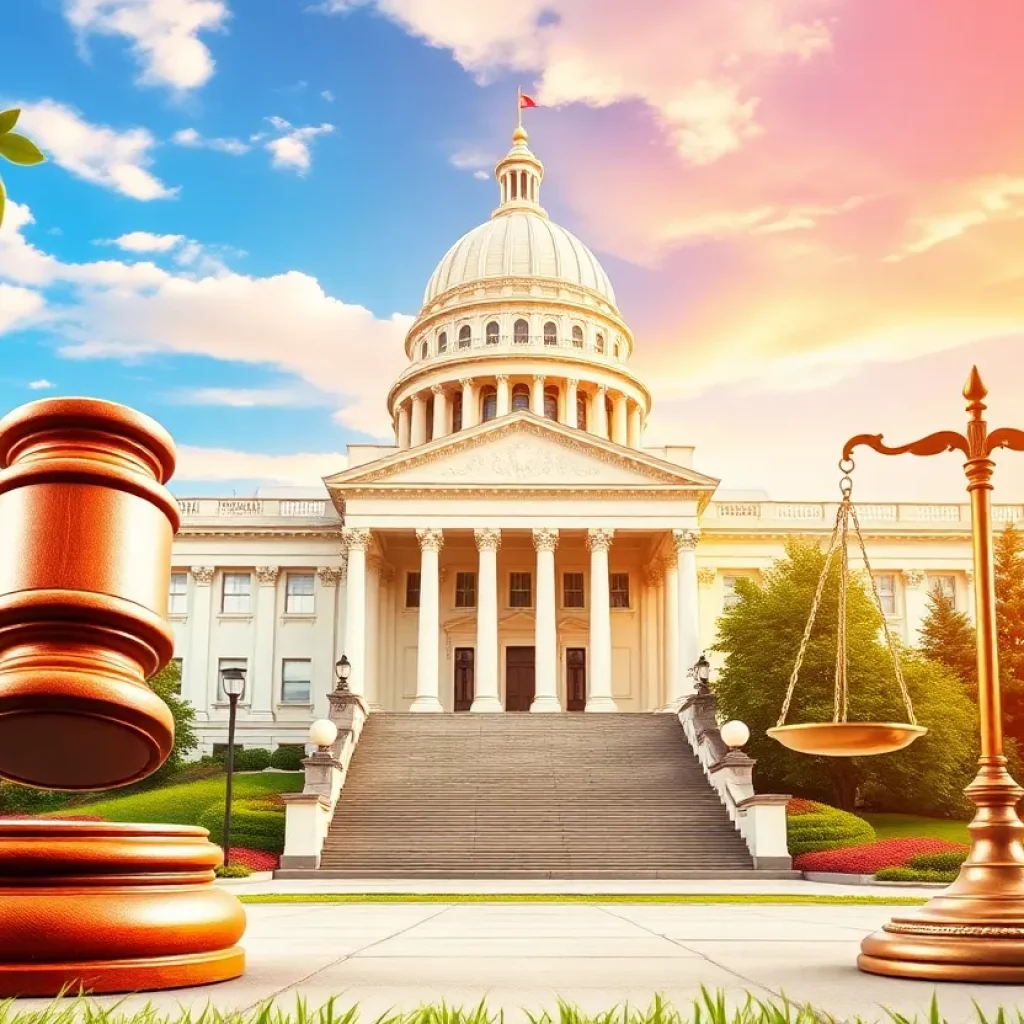Atlanta News
TOP ATLANTA STORIES
BREAKING NEWS
Shooting Incident at Apartment Complex in Atlanta Leaves One Dead
News Summary A morning shooting at an apartment complex in southwest Atlanta has resulted in one death and one injury. The police are investigating the incident that occurred when a...
Man Dead, Another Injured in Atlanta Apartment Shooting
News Summary A man has died and another is injured following a shooting incident at an apartment complex in southwest Atlanta. The incident occurred early Saturday morning, leading to a...
Drake London Shatters Records with Atlanta Falcons
News Summary In a remarkable season performance, Drake London of the Atlanta Falcons achieved 100 receptions for 1,271 yards and 9 touchdowns. Despite these impressive stats, he was overlooked for...
Magnitude 2.7 Earthquake Shakes Edgefield County
News Summary Edgefield County experienced a 2.7-magnitude earthquake on Saturday morning, with its epicenter near Plum Branch and Turkey roads. Thankfully, there were no reports of damage or injuries. While...
19-Year-Old in Critical Condition After Decatur Triple Shooting
News Summary A 19-year-old girl is in critical condition following a triple shooting at Chapel Hill Park in Decatur, Georgia. Two other victims suffered non-life-threatening injuries. As the investigation unfolds,...
Georgia Veterans Advocate for Medical Cannabis Access
News Summary As Fourth of July approaches, veterans in Georgia are urging lawmakers to expand access to medical cannabis for PTSD. With only limited qualifying conditions under the current registry,...
BUSINESS
Business Profile: Sinclair Construction Group
Sinclair Construction Group has been recognized as one of the premier concrete contracting companies in Georgia’s private and public sectors for a decade. Quality workmanship, commitment to safety, and customer satisfaction...
The 10 Best SEO Companies In Atlanta, GA
Are you a business owner in the Atlanta, GA looking for a reliable SEO company to help increase your online visibility and drive organic traffic to your site? Ranking at...
Events/What's Happening
Innovative Art Exhibitions Transform Atlanta’s Cultural Scene
News Summary A variety of compelling art exhibitions are captivating audiences across Atlanta this spring, spotlighting innovative artistic expressions that explore identity, culture, and social justice. Notable showcases include Craig...
Metro Atlanta Prepares for Spectacular Fourth of July Celebrations
News Summary Metro Atlanta and North Georgia are set to host an array of fireworks displays and festivities in celebration of the Fourth of July. Families can enjoy various events...
Tragic Death of Crew Member Halts Production at Trilith Studios
News Summary A crew member on the set of the upcoming ‘Superman’ film was found dead at Trilith Studios in Fayetteville, Georgia. The individual, a female Teamster member, reportedly died...
Fourth of July Celebrations in Metro Atlanta and North Georgia
News Summary Metro Atlanta and North Georgia are preparing for a vibrant Fourth of July weekend filled with fireworks, parades, and family-friendly festivities. With events scheduled across the regions, residents...
Independence Day Celebrations Planned Across Georgia
News Summary Georgia is preparing for a vibrant Independence Day celebration, which will span multiple cities offering fireworks, parades, and community events. Major highlights include fireworks displays in Alpharetta and...
Atlanta History Center Announces Changes for July 4 and Juneteenth Celebrations
News Summary The Atlanta History Center will adjust its schedule for July 4 and Juneteenth celebrations, opening both campuses at noon on July 4. The center will host a free...
Record-Breaking Travel Anticipated During Fourth of July Holiday
News Summary A record-setting 72.2 million Americans are expected to travel at least 50 miles from home during Fourth of July, according to AAA predictions. This signifies a 1.7 million...
Vesper Launches Paws on the Patio for Dog Lovers
News Summary Vesper introduces Paws on the Patio, a new weekly event for dog lovers in Atlanta. Every Sunday from 5 to 8 p.m., dog owners can enjoy the pet-friendly...
Hartsfield-Jackson Airport Plans Power Shutdowns for Safety
News Summary Hartsfield-Jackson International Airport is set to conduct three-night power shutdowns at its domestic terminal to test emergency lighting systems. Scheduled for June 30, July 2, and July 8,...
CRIME
Man Stabbed in Northwest Atlanta Over Parking Dispute
News Summary A 29-year-old man was stabbed during a dispute over a parking space in northwest Atlanta. The incident escalated from a verbal argument to a serious physical altercation, resulting...
Rising Youth Violence in Atlanta Raises Concerns
News Summary Two boys were injured in separate shooting incidents over the weekend in metro Atlanta, raising alarms about the increasing trend of youth violence in the area. While one...
Rising Violence in Atlanta Sparks Community Concerns
News Summary Atlanta is facing a worrying increase in violent incidents, leading to numerous arrests tied to shootings and assaults. Notably, a tragic homicide and multiple injuries from youth altercations...
Atlanta Leadership Reports Significant Reductions in Crime
News Summary Atlanta’s leadership has announced considerable progress in reducing crime rates, unveiling the summer safety initiatives under the One Safe City plan. With a 5% overall decrease in crime...
Residents of Georgia Receive Tax Refunds Amid Public Safety Concerns
News Summary Georgia residents are receiving tax refunds of up to $500 as part of a financial relief program, while the community of Smyrna grapples with a recent gunfight that...
Concerns Rise Over Child Welfare in Georgia Restaurant Incident
News Summary In Newnan, Georgia, two parents have been charged with endangering their 1-year-old child after allegedly serving the child beer at a restaurant. This alarming incident has prompted discussions...
POLITICS
Georgia Veterans Advocate for Medical Cannabis Access
News Summary As Fourth of July approaches, veterans in Georgia are urging lawmakers to expand access to medical cannabis for PTSD. With only limited qualifying conditions under the current registry,...
Thomas G. Sampson Sr. Passes Away, Leaving a Legacy in Atlanta
News Summary Thomas G. Sampson Sr., co-founder of Georgia’s oldest Black-owned law firm, has passed away. Recognized for his contributions to the legal field and community, his impact remains significant....
Salvadoran Journalist Released from ICE Custody
News Summary Mario Guevara, a Salvadoran journalist, was released from ICE custody after nearly two weeks of detention. Initially arrested while covering an immigration protest, charges against him were dropped...
Georgia Distributes Surplus Tax Refunds to Taxpayers
News Summary Georgia has initiated the distribution of over $600 million in surplus tax refunds, benefiting many eligible taxpayers. The refunds vary based on filing status, with single filers receiving...
New Laws Take Effect in Georgia
News Summary Georgia recently implemented over 100 new laws affecting various aspects of daily life, including transportation funding, public health, education reforms, and animal welfare measures. Significant allocations include $290...
North Korean Agents Indicted for Cryptocurrency Theft in Atlanta
News Summary Four North Korean agents have been indicted for allegedly stealing over $900,000 in cryptocurrency from an Atlantan business. They utilized fake identities to secure IT jobs, targeting blockchain...
North Korean Nationals Indicted for Cryptocurrency Theft
News Summary Four North Korean nationals have been indicted in Atlanta for stealing over $900,000 in cryptocurrency through a cybercrime scheme targeting local businesses. They exploited remote IT jobs using...
Vinings Ridge Ski Area: Atlanta’s Unique Ski Experiment
News Summary In the late 1970s, Atlanta saw the opening of Vinings Ridge Ski Area, a novel outdoor recreation facility allowing residents to ski in a warmer climate. Utilizing a...
Nurse Adriana Smith Laid to Rest Amid Calls for Change
News Summary Adriana Smith, a dedicated nurse from Atlanta, was laid to rest following a tragic brain death while pregnant. Her funeral in Lithonia gathered family and supporters advocating for...
SPORTS
Drake London Shatters Records with Atlanta Falcons
News Summary In a remarkable season performance, Drake London of the Atlanta Falcons achieved 100 receptions for 1,271 yards and 9 touchdowns. Despite these impressive stats, he was overlooked for...
Magnitude 2.7 Earthquake Shakes Edgefield County
News Summary Edgefield County experienced a 2.7-magnitude earthquake on Saturday morning, with its epicenter near Plum Branch and Turkey roads. Thankfully, there were no reports of damage or injuries. While...
Orioles Edge Braves in Close Contest
News Summary The Baltimore Orioles narrowly defeated the Atlanta Braves 3-2 at Truist Park, thanks to a strong performance from Jordan Westburg, who contributed three hits including a pivotal home...
Joe Johnson Celebrates 44th Birthday as NBA Star
News Summary Joe Johnson, known as ‘Iso Joe’, marks his 44th birthday, reflecting on an illustrious NBA career that includes seven All-Star selections and significant contributions to the Atlanta Hawks....
Malcolm Wellmaker Achieves First-Round Knockout in Atlanta
News Summary Malcolm Wellmaker delivered a stunning first-round knockout against Kris Moutinho during the UFC on ESPN 69 event in Atlanta, Georgia. The match, held at State Farm Arena, culminated...
Arthur Blank Inducted into Atlanta Falcons Ring of Honor
News Summary Arthur Blank, owner of the Atlanta Falcons, was honored with induction into the Atlanta Falcons Ring of Honor during a game against the Kansas City Chiefs. This recognition...
Severe Storms Lead to Fatalities and Destruction in Georgia
News Summary Severe storms have swept through northern Georgia, leaving one person dead and causing extensive property damage. About 107,000 customers are without power, while various counties report downed trees...
Atlanta Falcons Focus on Offseason Developments
News Summary The Atlanta Falcons are navigating key offseason activities, highlighted by Kyle Pitts’ injury concerns and promising rookie performances. Coach Raheem Morris is emphasizing player health and community engagement,...
Jason Batt Set to Leave Georgia Tech for Michigan State
News Summary Jason ‘J’ Batt, the athletic director at Georgia Tech, is close to finalizing a move to Michigan State University as their new athletic director. His new contract is...










































